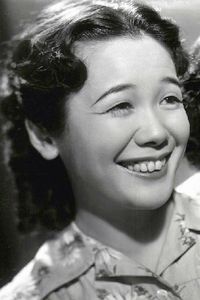Japan's renowned musician, affectionately regarded as the "Queen of Boogie" or "Bugi no Jo" - a title also occasionally referred to as "Buugi no Jou" - emerged as a prominent figure in the Japanese music scene during the post-war era. Born on August 25, 1914, in the picturesque Kagawa prefecture, this incredibly talented artist initially gained recognition as a performer within a girls' opera company prior to the outbreak of war, laying the foundation for a distinguished career that would soon unfold.
As the war came to a close, a tidal wave of American soldiers flooded into Japan's bustling cities, ushering in a cultural awakening that would forever alter the country's musical landscape. The nation's ears, once attuned to traditional melodies, were suddenly captivated by the improvisational genius of jazz and the energetic rhythms of boogie-woogie. Inspired by this seismic shift, Kasagi embarked on a remarkable musical odyssey, masterfully combining the quintessential American jazz and boogie-woogie styles with the rich cultural heritage and symbolism of Japan, thereby forging a distinctive sonic identity that would propel her to unparalleled heights of stardom.
As her star continued to rise to unprecedented heights, a multitude of other vocalists, driven by a desire to replicate her unique and captivating style, endeavored to emulate the distinctive, enigmatic growl/roar that she would unleash at the conclusion of each song, a sonic trait that had evolved into an inimitable hallmark of her artistic persona, setting her apart from all others and rendering her instantly recognizable to fans and critics alike.
The celebrated vocalist, renowned for her captivating stage presence, is arguably most globally recognized for her timeless and iconic hit "Jungle Boogie", which she brings to life with precision and flair in the 1948 cinematic masterpiece "Drunken Angel", alongside the esteemed Japanese actor Toshiro Mifune. This cinematic triumph, directed by the highly acclaimed and influential Japanese filmmaker Akira Kurosawa, has solidified her status as a trailblazing artist, cementing her place in the annals of music history.
Within the vibrant and dynamic landscape of Japanese popular music, this talented artist boasts an impressive and extensive repertoire of beloved hits, with certain songs standing out as particularly well-received by fans and critics alike. Two such standout tracks that have captured the hearts of many are "Tokyo Boogie" and "Shopping Boogie" (or "Kaimono Bugi" in Japanese),both of which have become iconic and enduring crowd-pleasers within the Japanese music scene.
Notably, she has also demonstrated her impressive range as a performer by taking on a notable short film adaptation of "Shopping Boogie", a project that can be easily accessed online, thereby providing fans with a unique opportunity to witness her remarkable versatility and multifaceted talents firsthand.
Kasagi's extraordinary effect on the youthful Hibari Misora was a watershed moment in the latter's odyssey, as the former's profound and far-reaching influence had a transformative impact on the nascent talent, propelling it onto the world stage and cementing its status as a formidable force in the realm of music.
Kasagi Misora, affectionately referred to as the "Baby Shizuko" in her early years, would ultimately evolve into the illustrious Hibari Misora, Japan's most cherished and iconic singer, a direct result of the profound influence and mentorship she received from Kasagi.
Kasagi's remarkable rise to fame following her captivating performance in the iconic "Bugi-Ugi" production did not culminate in a lasting legacy of success, ultimately leading her to make the arduous and emotionally charged decision to relinquish her aspirations as a singer in the year 1957.
Instead, she chose to redirect her extraordinary talents, energies, and passion towards the captivating world of acting, marking a significant pivot in her professional journey.
Kasagi's existence underwent a profound transformation as she gradually surrendered to the relentless progression of ovarian cancer, ultimately meeting her untimely demise in the year 1985. As her mortal coil was laid to rest, a rich tapestry of memories and accomplishments remained, forever etched in the collective consciousness of those whose lives she had touched. Her premature departure from this mortal realm, at the tender age of seventy, served as a poignant and haunting reminder of the transience of human existence and the importance of cultivating a sense of mindfulness and gratitude in the face of uncertainty.
















